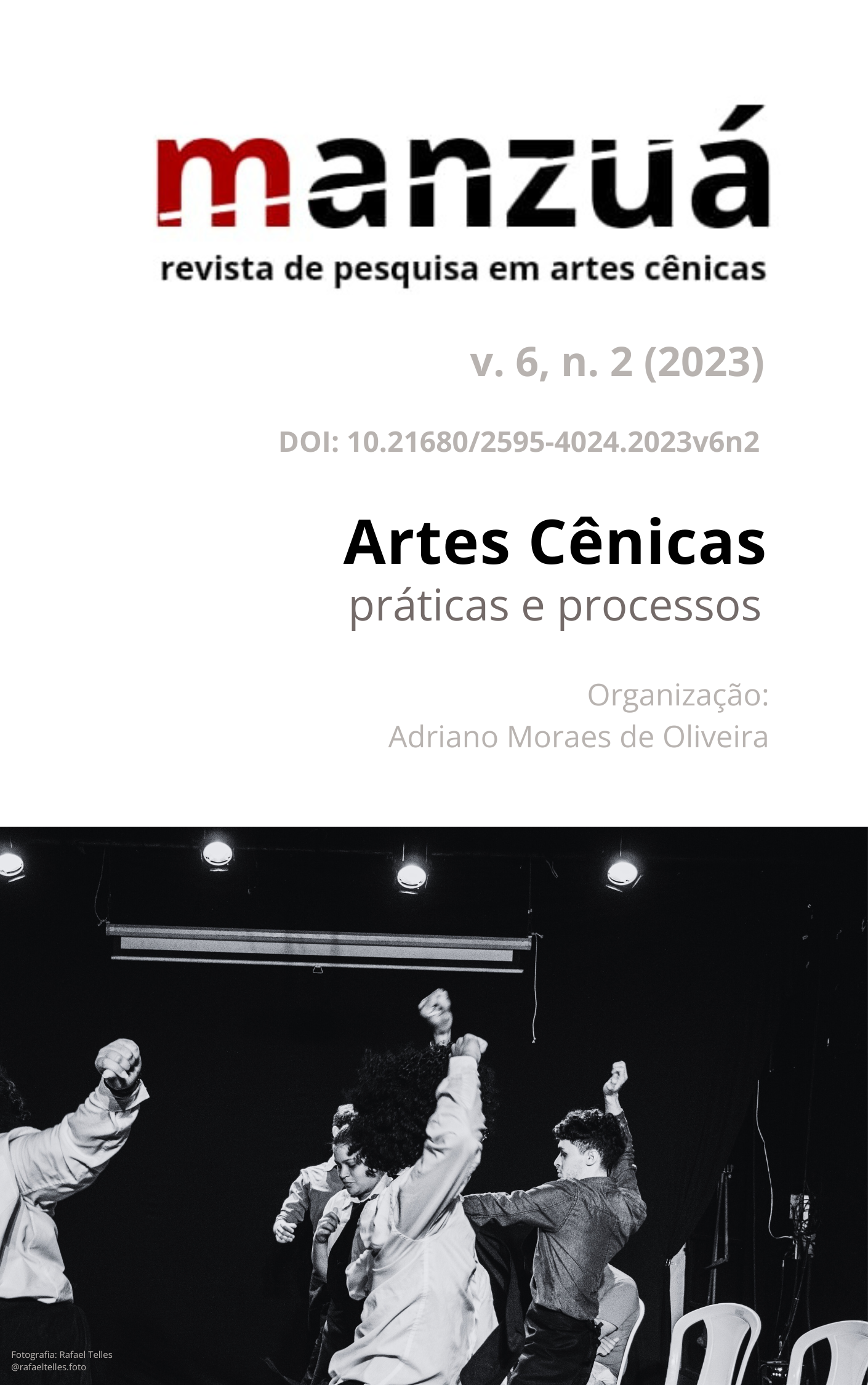SOMEWHERE IN HISTORY:
SOMEWHERE IN HISTORY: THE THEATER SCENE BUILT BY IONE DE MEDEIROS AND ITS RELATIONSHIP WITH GENDER ISSUES.
DOI:
https://doi.org/10.21680/2595-4024.2023v6n2ID31528Abstract
The article discusses the gender issues that we think exist in the Minas Gerais theater scene, for that, we analyze here the trajectory of Director Ione de Medeiros, co-founder of the Grupo Oficcina Multimédia de Belo Horizonte, in addition to analyzing the show Bom Dia Missislifi (1995 ), conceived and directed by Ione de Medeiros. In order to make this friction regarding the issue of gender, we started from the director's own speech, regarding the issues faced by her at the beginning of her career as a theater director, her difficulties in achieving acceptance of the medium, the lack of understanding as to what she was proposing. do and take to the scene, the distrust for the fact of being a woman. To solidify this discussion, and rub the subject even further, we use the thoughts of Judith Butler, contained in the book Gender Problems: Feminism and Identity Subversion.
Downloads
Downloads
Published
How to Cite
Issue
Section
License
Copyright (c) 2023 Alberto Ferreira da Rocha Junior, Osmar Vanio Fernandes

This work is licensed under a Creative Commons Attribution-NonCommercial-ShareAlike 4.0 International License.
Autores que publicam nesta revista concordam com os seguintes termos:
Autores mantém os direitos autorais e concedem à revista o direito de primeira publicação, com o trabalho simultaneamente licenciado sob a Licença Creative Commons Attribution que permite o compartilhamento do trabalho com reconhecimento da autoria e publicação inicial nesta revista.
Autores têm autorização para assumir contratos adicionais separadamente, para distribuição não-exclusiva da versão do trabalho publicada nesta revista (ex.: publicar em repositório institucional ou como capítulo de livro), com reconhecimento de autoria e publicação inicial nesta revista.
Autores têm permissão e são estimulados a publicar e distribuir seu trabalho online (ex.: em repositórios institucionais ou na sua página pessoal) a qualquer ponto antes ou durante o processo editorial, já que isso pode gerar alterações produtivas, bem como aumentar o impacto e a citação do trabalho publicado (Veja O Efeito do Acesso Livre).


 Português (Brasil)
Português (Brasil) English
English Español (España)
Español (España) Français (Canada)
Français (Canada)